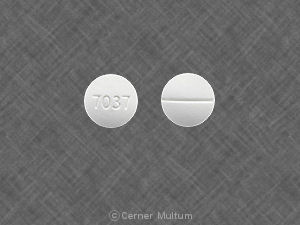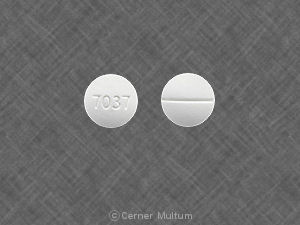What is  Methyl Testoste Rone?
Methyl Testoste Rone?
Methyltestosterone is a man-made form of testosterone, a naturally occurring sex hormone that is produced in a man’s testicles. Small amounts of testosterone are also produced in a woman’s ovaries and adrenal system.
Methyltestosterone is used in men and boys to treat conditions caused by a lack of this hormone, such as delayed puberty or other hormonal imbalances. Methyltestosterone is also used in women to treat breast cancer that has spread to other parts of the body.
Methyltestosterone may also be used for other purposes not listed in this medication guide.
What is the most important information I should know about Methyl Testoste Rone?
Methyltestosterone can cause birth defects. Do not use if you are pregnant. Use effective birth control, and tell your doctor if you become pregnant during treatment.
You should not use this medication if you are allergic to methyltestosterone, or have prostate cancer or male breast cancer.
Before receiving methyltestosterone, tell your doctor if you have benign prostatic hypertrophy, breast cancer, a bleeding or blood clotting disorder, liver or kidney disease, heart disease, coronary artery disease, congestive heart failure, or a history of heart attack.
To be sure this medication is helping your condition, your blood will need to be tested on a regular basis. Do not miss any scheduled visits to your doctor.
Methyltestosterone can affect bone growth in boys who are treated for delayed puberty. Bone development may need to be checked with x-rays every 6 months during treatment.
What should I discuss with my healthcare provider before taking Methyl Testoste Rone?
You should not use this medication if you are allergic to methyltestosterone, or have certain conditions. Be sure your doctor knows if you have:
- prostate cancer
- male breast cancer; or
- if you are pregnant
Before receiving methyltestosterone, tell your doctor if you are allergic to any drugs, or if you have:
- benign prostatic hypertrophy (BPH)
- breast cancer
- a bleeding or blood clotting disorder
- delayed puberty
- liver or kidney disease; or
- heart disease, coronary artery disease (hardened arteries), congestive heart failure, or a history of heart attack
If you have any of these conditions, you may need a dose adjustment or special tests to safely take methyltestosterone.
FDA pregnancy category X. This medication can cause birth defects. Do not receive methyltestosterone if you are pregnant. Tell your doctor right away if you become pregnant during treatment. Use an effective form of birth control while you are receiving this medication.
It is not known whether methyltestosterone passes into breast milk or if it could harm a nursing baby. Do not receive this medication without telling your doctor if you are breast-feeding a baby.
Methyltestosterone can affect bone growth in boys who are treated for delayed puberty. Bone development may need to be checked with x-rays every 6 months during treatment.
Methyl Testoste Rone Side Effects
What are the possible side effects of Methyl Testoste Rone?
Get emergency medical help if you have any of these signs of an allergic reaction: hives; difficulty breathing; swelling of your face, lips, tongue, or throat.
Call your doctor at once if you have any of these serious side effects:
- feeling short of breath, even with mild exertion
- swelling, rapid weight gain
- increased or ongoing erection of the penis
- bone pain, increased thirst, memory problems, restless feeling, confusion, nausea, loss of appetite, increased urination, weakness, muscle twitching; or
- nausea, vomiting, stomach pain, loss of appetite, and jaundice (yellowing of the skin or eyes)
Women receiving methyltestosterone may develop male characteristics, which could be irreversible if testosterone treatment is continued. Stop taking this medication and call your doctor at once if you notice any of these signs of excess testosterone:
- changes in menstrual periods
- male-pattern hair growth (such as on the chin or chest)
- hoarse voice; or
- enlarged clitoris
Less serious side effects (in men or women) may include:
- acne, changes in skin color
- breast swelling
- male pattern baldness
- headache, anxiety, depressed mood
- mild nausea
- numbness or tingly feeling; or
- increased or decreased interest in sex
This is not a complete list of side effects and others may occur. Tell your doctor about any unusual or bothersome side effect. You may report side effects to FDA at 1-800-FDA-1088.
Methyl Testoste Rone Interactions
What other drugs affect Methyl Testoste Rone?
The following drugs can interact with methyltestosterone. Tell your doctor if you are using any of these:
- a blood thinner such as warfarin (Coumadin); or
- insulin or diabetes medication you take by mouth
This list is not complete and there may be other drugs that can affect methyltestosterone. Tell your doctor about all the prescription and over-the-counter medications you use. This includes vitamins, minerals, herbal products, and drugs prescribed by other doctors. Do not start using a new medication without telling your doctor.
What should I avoid while taking Methyl Testoste Rone?
Follow your doctor’s instructions about any restrictions on food, beverages, or activity while you are using methyltestosterone.
Methotrexate Dosage
How should I take Methotrexate?
Methotrexate (Oral)
Take this medication exactly as it was prescribed for you. Do not take the medication in larger amounts, or take it for longer than recommended by your doctor.
You must use the correct dose of methotrexate for your condition. Methotrexate is usually taken once or twice per week and not every day. Follow the directions on your prescription label. Some people have died after taking methotrexate every day by accident. Ask your doctor if you have any questions about your dose of methotrexate or how often to take it.
This medication comes with patient instructions for safe and effective use. Follow these directions carefully. Ask your doctor or pharmacist if you have any questions.
It is important to use methotrexate regularly to get the most benefit. Get your prescription refilled before you run out of medicine completely.
To be sure this medication is not causing harmful effects, your blood will need to be tested on a regular basis. Your kidney or liver function may also need to be tested, and you may need an occasional liver biopsy. Do not miss any scheduled appointments.
Store methotrexate at room temperature away from moisture and heat.
Methotrexate (Injection)
Methotrexate is given as an injection into a muscle or through a needle placed into a vein. Methotrexate may also be injected directly into a joint, or into the area around your spinal cord. You will receive this injection in a clinic or hospital setting.
To be sure this medication is not causing harmful effects, your blood will need to be tested on a regular basis. Your kidney or liver function may also need to be tested, and you may need an occasional liver biopsy or chest x-ray. Do not miss any scheduled appointments.
What happens if I overdose on Methotrexate?
Methotrexate (Oral)
Seek emergency medical attention if you think you have used too much of this medicine. An overdose of methotrexate can be fatal.
Overdose symptoms may include pale skin, easy bruising or bleeding, unusual weakness, mouth sores, nausea, vomiting, black or bloody stools, coughing up blood or vomit that looks like coffee grounds, and urinating less than usual or not at all.
Methotrexate (Injection)
Seek emergency medical attention if you think you have received too much of this medicine. An overdose of methotrexate injection can be fatal.
Overdose symptoms may include headache, confusion, nausea, vomiting, or seizure (convulsions).
What happens if I miss a dose of Methotrexate?
Methotrexate (Oral)
Call your doctor if you miss a dose of methotrexate.
Methotrexate (Injection)
Call your doctor if you miss an appointment for your methotrexate injection.
Edited from everydayhealth.com
